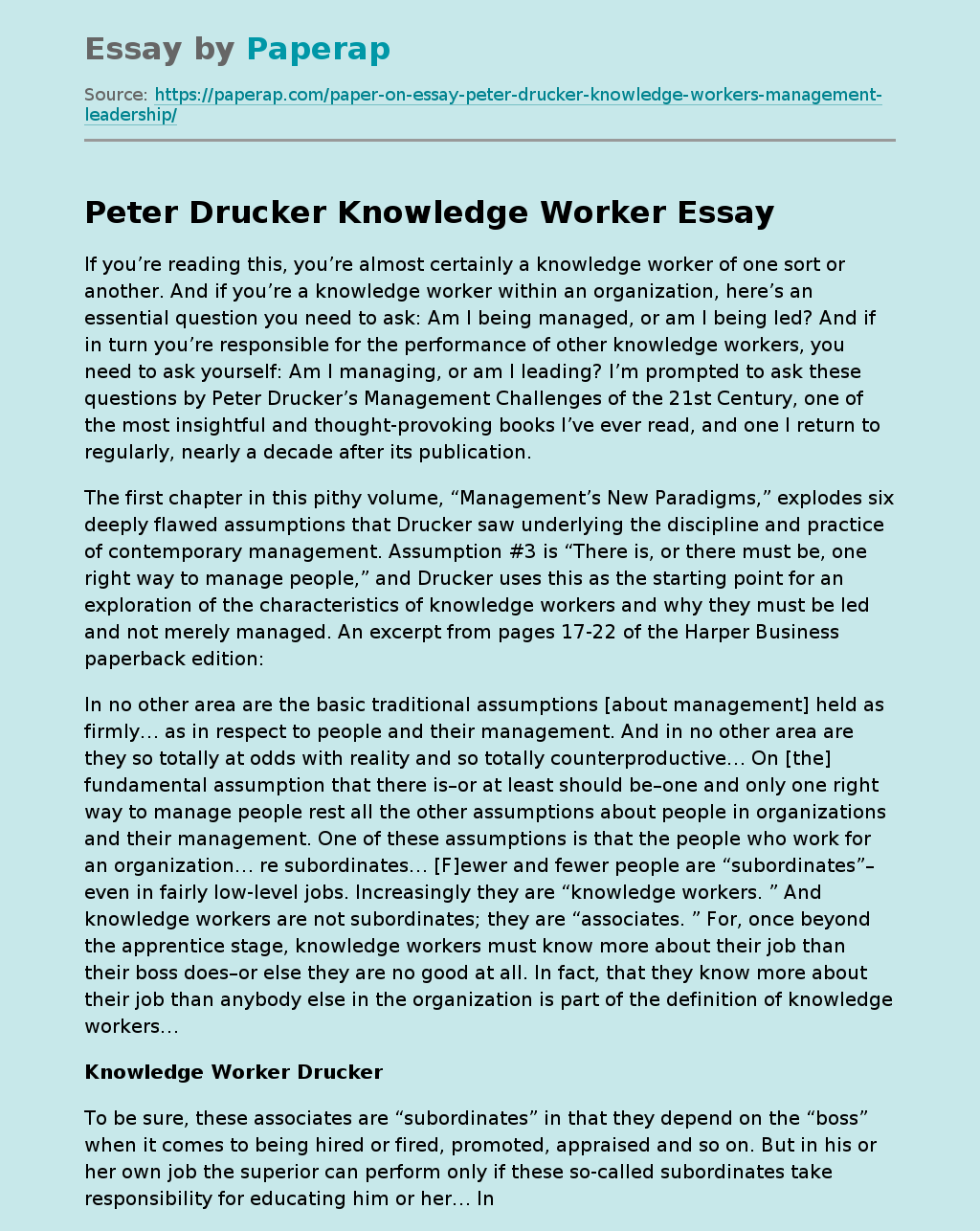Peter Drucker Knowledge Worker
If you’re reading this, you’re almost certainly a knowledge worker of one sort or another. And if you’re a knowledge worker within an organization, here’s an essential question you need to ask: Am I being managed, or am I being led? And if in turn you’re responsible for the performance of other knowledge workers, you need to ask yourself: Am I managing, or am I leading? I’m prompted to ask these questions by Peter Drucker’s Management Challenges of the 21st Century, one of the most insightful and thought-provoking books I’ve ever read, and one I return to regularly, nearly a decade after its publication.
The first chapter in this pithy volume, “Management’s New Paradigms,” explodes six deeply flawed assumptions that Drucker saw underlying the discipline and practice of contemporary management. Assumption #3 is “There is, or there must be, one right way to manage people,” and Drucker uses this as the starting point for an exploration of the characteristics of knowledge workers and why they must be led and not merely managed.
An excerpt from pages 17-22 of the Harper Business paperback edition:
In no other area are the basic traditional assumptions [about management] held as firmly… as in respect to people and their management.
And in no other area are they so totally at odds with reality and so totally counterproductive… On [the] fundamental assumption that there is–or at least should be–one and only one right way to manage people rest all the other assumptions about people in organizations and their management. One of these assumptions is that the people who work for an organization… re subordinates… [F]ewer and fewer people are “subordinates”–even in fairly low-level jobs. Increasingly they are “knowledge workers. ” And knowledge workers are not subordinates; they are “associates. ” For, once beyond the apprentice stage, knowledge workers must know more about their job than their boss does–or else they are no good at all. In fact, that they know more about their job than anybody else in the organization is part of the definition of knowledge workers…
Knowledge Worker Drucker
To be sure, these associates are “subordinates” in that they depend on the “boss” when it comes to being hired or fired, promoted, appraised and so on. But in his or her own job the superior can perform only if these so-called subordinates take responsibility for educating him or her… In turn, these “subordinates” depend on the superior for direction. They depend on the superior to tell them what the “score” is. Their relationship, in other words, is far more like that between the conductor of an orchestra and the instrumentalist than it is like the traditional superior/subordinate relationship…
Peter Drucker Knowledge Worker. (2019, Dec 05). Retrieved from https://paperap.com/paper-on-essay-peter-drucker-knowledge-workers-management-leadership/

